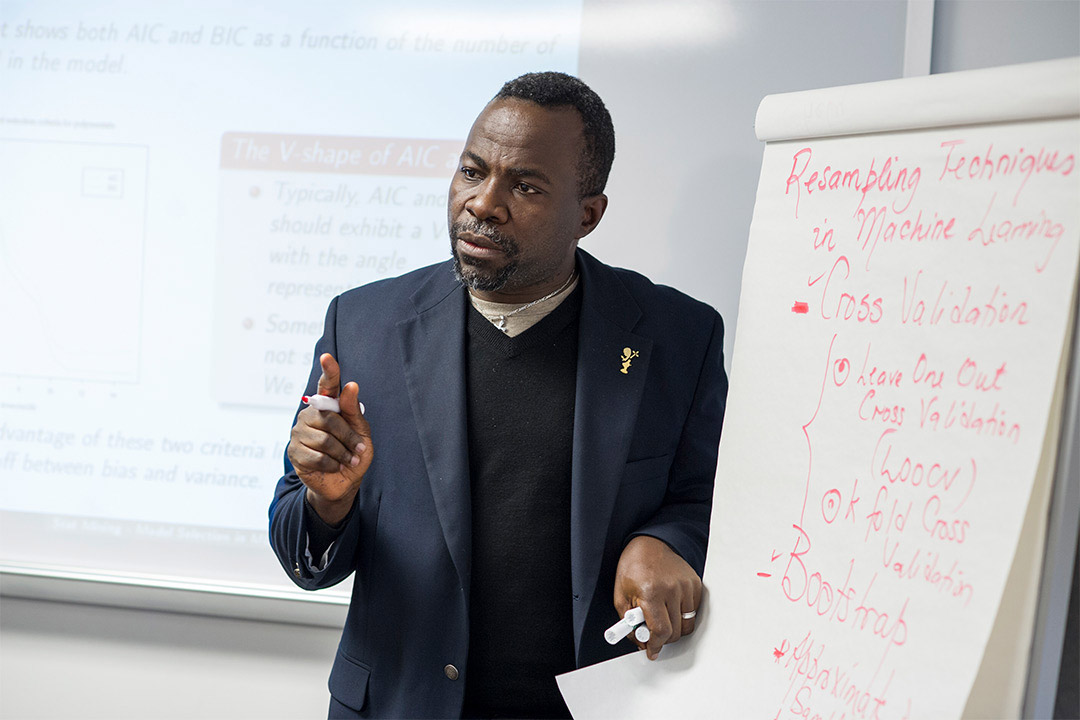RIT professor explores the art and science of statistical machine learning
Professor Ernest Fokoué details the field at the heart of advances in artificial intelligence
Elizabeth Lamark
Professor Ernest Fokoué of RIT’s School of Mathematical Sciences.
Statistical machine learning is at the core of modern-day advances in artificial intelligence, but a Rochester Institute of Technology professor argues that applying it correctly requires equal parts science and art. Professor Ernest Fokoué of RIT’s School of Mathematical Sciences emphasized the human element of statistical machine learning in his primer on the field that graced the cover of a recent edition of Notices of the American Mathematical Society.
“One of the most important commodities in your life is common sense,” said Fokoué. “Mathematics is beautiful, but mathematics is your servant. When you sit down and design a model, data can be very stubborn. We design models with assumptions of what the data will show or look like, but the data never looks exactly like what you expect. You may have a nice central tenet, but there’s always something that’s going to require your human intervention. That’s where the art comes in. After you run all these statistical techniques, when it comes down to drawing the final conclusion, you need your common sense.”
Statistical machine learning is a field that combines mathematics, probability, statistics, computer science, cognitive neuroscience and psychology to create models that learn from data and make predictions about the world. One of its earliest applications was when the United States Postal Service used it to accurately learn and recognize handwritten letters and digits to autonomously sort letters. Today, we see it applied in a variety of settings, from facial recognition technology on smartphones to self-driving cars.
Researchers have developed many different learning machines and statistical models that can be applied to a given problem, but there is no one-size-fits-all method that works well for all situations. Fokoué said using selecting the appropriate method requires mathematical and statistical rigor along with practical knowledge. His paper explains the central concepts and approaches, which he hopes will get more people involved in the field and harvesting its potential.
“Statistical machine learning is the main tool behind artificial intelligence,” said Fokoué. “It’s allowing us to construct extensions of the human being so our lives, transportation, agriculture, medicine and education can all be better. Thanks to statistical machine learning, you can understand the processes by which people learn and slowly and steadily help humanity access a higher level.”
This year, Fokoué has been on sabbatical traveling the world exploring new frontiers in statistical machine learning. Fokoué’s full article is available on the AMS website.





